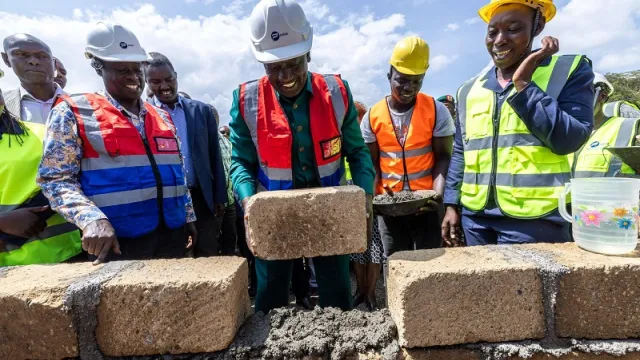Court dismisses State's request to stay housing levy

Court dismisses State's request to stay housing levy
In a fresh setback for President William Ruto and his administration, the Court of Appeal has thrown out the State's plea to extend an order allowing the continued collection of the controversial housing levy from employees.
The three-judge bench, comprised of Justices Lydia Achode, John Mativo, and Mwaniki Gachoka, delivered the verdict, noting that public interest lies in refraining from granting the stay sought by the government.
This decision follows a previous ruling by the High Court, which deemed the housing levy illegal, citing constitutional violations.
Last year, three judges of the High Court, namely Justices David Majanja, Christine Meoli, and Lawrence Mugambi, declared the housing levy, introduced through an amendment to the Employment Act by Section 84 of the Finance Act, 2023, as lacking a comprehensive legal framework.
The High Court argued that this amendment violated several constitutional articles, including Articles 10, 201, 206, and 210 of the Constitution.
Furthermore, the judges criticized the imposition of the housing levy solely on individuals in formal employment, effectively excluding other non-formal income earners, deeming this move unjust, discriminatory, and irrational.
Public interest
Soon after, the government sought respite from the Court of Appeal by requesting the suspension of the High Court's judgment.
However, the appellate court, in its ruling, asserted that public interest favored withholding the stay and awaiting the determination of the issues raised in the intended appeals.
The judges highlighted the pivotal question of whether granting a stay, which allows an unconstitutional statute to persist until an appeal is heard, serves the public interest.
The court expressed its reluctance to endorse such a course of action, reasoning that should the Appeal court affirm the constitutional invalidity of the housing levy, all actions taken under its purview during the intervening period would be legally fragile.
The judges cautioned on the potential repercussions of allowing an unconstitutional law to remain in force pending an appeal, cautioning against the legal implications of actions undertaken under such provisions.
As the legal battle continues, the government has been reconsidering its approach to the housing levy and seeks to address the concerns raised by the judiciary through an ongoing public participation exercise that seeks to cure the law.
In August last year, the Kenya Revenue Authority ordered employers to remit a 1.5 percent contribution, along with a corresponding rate from employees' salaries, towards the Housing Levy.
This obligation, backdated from July 2023, has faced criticism and legal challenges. Despite the opposition, President Ruto remains steadfast in his support for the mandatory housing levy, asserting that the funds collected will play a pivotal role in achieving Kenya's affordable housing goals and addressing issues related to informal settlements in urban areas.

Read also: State gets nod to keep collecting housing levy
Jobs for the youth
President Ruto contends that the funds generated will not only support affordable housing initiatives but also create job opportunities for the youth.
Notably, Ruto emphasizes his government's commitment to achieving these objectives without resorting to external borrowing, underlining a self-reliant approach to national development.
However, the opposition coalition, Azimio la Umoja, opposes the mandatory housing tax, branding it as unsustainable. The coalition aligns itself with court petitions seeking to shelve the levy, challenging its legality and potential impact on the citizens.
This opposition underscores the deep divide on the issue, with critics expressing concerns about the financial burden on both employers and employees and questioning the long-term viability of the housing levy as a solution to the country's housing challenges.



